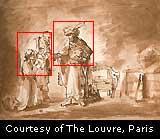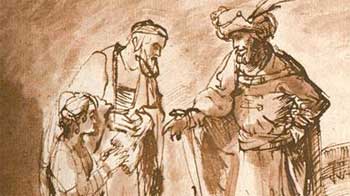Holy Writ?
At face value, the story of Esther, the Jewess who became the queen of the vast empire of Persia and Media, is a tale of resounding success. Esther, an exile, an orphan and a person forced to disguise her ethnicity rises (through providence and personal courage), to royal estate and brings about the deliverance of her threatened nation.
But the canonical Book of Esther which records these events stirred up a great deal of controversy. This ostensibly sacred book surprisingly makes no mention of God, and has time and time again been brought up on charges of secularity.
Shmaryahu Talmon writes:
There are no recitals of historical landmarks; the election of Israel or its history, the covenant with the forefathers, the exodus, God's love for the House of David which take such a prominent place in biblical historiography.
It would seem that the operative response to Haman's anti-Semitic decrees in the Diaspora should be Zionistic. Yet there is no mention in Esther of the Land of Israel, Jerusalem or the Temple. Beyond the absence of all of the above-mentioned elements, the text describes the inter-marriage of Esther to a gentile king without raising an eyebrow.
Talmudic literature debated the efficacy of including Esther in the biblical canon, given how much militated against it. Surprisingly, in the final analysis, the book became an integral part of scripture. Several explanations of this choice may be offered.
Coincidence >>
